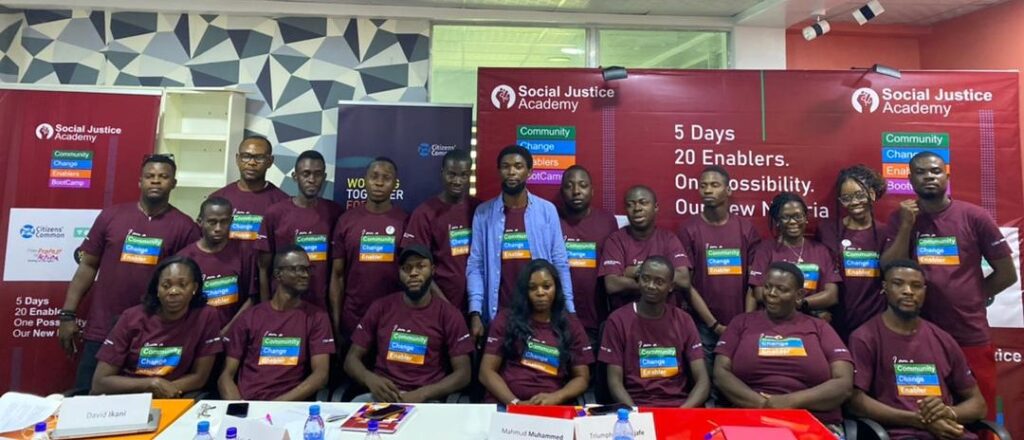
Undressing the Goliath: Combat Terrorism, follow the Money
Written By Dr. Abayomi Okubote, FCIArb
The global attention given to the financial underpinnings of organized crimes was renewed by the terrorist attacks on the United States in September 2001. Since then, a new financial vista has been opened in the war on terror, complementary to the traditional military approach. This new vista in the fight against terror signifies the use of enforcement strategies to combat the financing of terrorism.
It bears noting that the Hawala, with its invisible banking system and lack of conventional banking structure, has provided an effective vehicle for money laundering and terrorism financing, frustrating the efforts of law enforcement agencies. This has raised an increased concern about the putative connection between the informal funds transfer systems and terrorist activities. Also, many charitable organizations serve as fronts for international terrorist groups, while some charitable organizations limit their activities to general logistical and financial support for terrorist attacks.
While terrorist financing (which is usually perpetrated on a cross-border basis) is generally considered to be detrimental to the international community as a whole, its de facto regulation and control remains a matter for individual countries that are required to adopt and implement international Anti-Terrorist Financing (ATF) standards in their regulation and control of terrorist financing (TF). The global fight against TF is, thus, largely dependent on its efficaciousness in the adoption and comprehensive implementation of international ATF standards by individual countries.
In recent years, Nigeria has been plagued with the recent upsurge in not only terrorist attacks, but also increase in terrorist financing. In line with the Financial Action Task Force (FATF) Recommendations, comprehensive and detailed substantive legislation on terrorism and terrorist financing was enacted in 2011 – the Terrorism (Prevention) Act, 2011 (TPA) and the formulation of the Terrorist Prevention (Freezing of International Terrorist Funds and Other Related Measures, etc.) Regulation 2011, giving effect to the Terrorism Prevention Act of 2011 but with a specific focus on the United Nations Security Council resolutions 1257 and 1373. The TPA, among other things, prohibits acts of terrorism and terrorism financing or funding. It places obligations on financial institutions or designated non-financial institutions to report suspicious transactions relating to terrorism to the Financial Intelligence Unit for onward transmission to the relevant law enforcement agency.
The regulatory architecture of Nigeria’s ATF legal framework is “multi-peaked” – comprising three primary ATF policy-setting and administration agencies and some secondary regulatory/administrative and enforcement agencies. Several regulatory checks include (a) insisting that customer due diligence is carried out by banks on customers so that terrorists and other criminals do not misuse the financial system to carry out their activities and (b) strengthening collaborative relationships between law enforcement and security agencies on information sharing and intelligence gathering.
Despite the spate of terrorist attacks, mass killings by terrorists, and kidnap of girls and the vulnerable, the Nigeria legal framework on ATF stands weak and is fraught with very fundamental ambiguities and contradictions, which have a likelihood of defeating its essence and purpose. The ability of terrorist groups to capitalize on the global interconnectivity of the financial services sector illustrates the centrality of the international free market system in helping to finance terrorism.
In the National Money Laundering and Terrorist Financing Risk Assessment 2016, terrorist financing risk was rated to be Medium as derived from the combined assessment of terrorist financing threats and vulnerabilities. The report concluded with a recommendation for developing a National AML/CFT strategy framework that will serve as a road map for implementing a national AML/CFT coordination mechanism and efficient resource allocation. The strategy framework also serves as a policy guideline to policymakers, regulators, and law enforcement agencies in addressing the challenges of terrorist financing in the country and ensuring the application of a risk-based approach by the financial and designated non-financial institutions.
Even with the strategy framework and other regulatory efforts by administrative and regulatory agencies in Nigeria, despite the creation of agencies of government to combat terrorism, despite the additional funding and unprecedented and intrusive powers provided to enforcement agencies and units, and despite the many accusations that Nigeria is awash with terrorists and their money, few arrests or seizures of terrorist funds and conviction of financiers of terrorism have been made in Nigeria.
It would appear that the country needs a more effective national action plan that focuses on prosecuting the financiers of terrorism and crippling the sources of their finances. The current approach mainly focuses on military actions against terrorists without the complementary antidotes that chronicle the financial sources of the terrorists and destroying them. As President George W. Bush noted in 2001, “we will starve terrorists of funding, turn them against each other, rout them out of their safe hiding places and bring them to justice.” In achieving this objective amplified by President Bush, some US airstrikes in Syria targeted oil facilities controlled by ISIS in a deliberate attempt to eliminate a lucrative source of income for the rapidly expanding jihadist group. According to the US command, airstrikes were launched against refineries in the country’s east; these included at least four oil installations and three oil fields around the town of Mayadeen. It goes without saying that when the financial sources are unearthed and met with suitable legislative formulations and positive actions, as in the US approach of destroying ISIS-controlled oil facilities, which have been identified as not only fueling ISIS’s military operations but also providing money to finance continued attacks throughout Iraq and Syria, the terrorists may become impecunious. This may ultimately lead Nigeria back to its peaceful past. It will not happen overnight, and this will undoubtedly involve a deliberate and genuine effort to match sharp intelligence with legal mercenaries.
Nigeria should realize that terrorism has become a Goliath and, like the biblical philistine, should be deprived of its armour and source of strength. This requires (a) improving the operational capacity of law enforcement agencies; (b) naming, shaming, and prosecuting financiers of terrorism; and (c) confiscating the assets of terrorists and their financiers.
This article is an Excerpt from the report ” A Nigeria For The Many And Not The Few”
About the Author
Featured in the Legal 500 Africa Arbitration Powerlist 2021 as “one of the thought leaders of arbitration in Africa” and by described by peers as “innovative and exceptional”, Abayomi is an International Arbitration Partner at Pensbury Attorneys & Solicitors – an arbitration boutique law firm in Nigeria. He has garnered circa 15 years’ experience in dispute resolution. He was part of the teams that represented multinational and domestic corporations in high profile commercial disputes and has advised government agencies on several cutting-edge projects in Africa. Beyond leading big-ticket mandates, the multiple award winner is the prime mover behind several important arbitration initiatives in Africa. He is the Founder of the Association of Young Arbitrators (AYA), the Executive Director of the Africa Arbitration Academy and is the Managing Editor of the African Journal of International Arbitration. Abayomi is an alumnus of Queen’s University in Canada, the University College London, Harvard Negotiation Institute, ICC Summer School, and the Paris Arbitration Academy. He has completed work programs in the London offices of Baker McKenzie LLP and 4-5 Gray’s Inn.
Abayomi has been appointed by the Nigerian courts and has sat as an arbitrator in several domestic and international arbitrations. He was recently appointed by the Nigerian court to chair an arbitral tribunal over a multi-Billion Naira construction dispute. His PhD project focused on developing a Model Law on Third-Party Funding in International Arbitration and received generous funding from different institutions including the $40,000 scholarship award by the Centre for International Governance Innovation (CIGI) in Waterloo, Canada. This important research project was also nominated for the national round of the SSHRC Doctoral Scholarship in Canada.
Abayomi is a Professor of Global Business Law at Loyalist College in Canada, Visiting Professor at the College of Law in Bowen University in Nigeria, Tutor and Faculty Member at the CIArb Diploma in International Arbitration Programme at Oxford University in the United Kingdom. He is a Fellow of the Chartered Institute of Arbitrators, Court Member of the Lagos Chamber of Commerce International Arbitration Centre and is listed on panels at the Cairo Regional Centre for International Arbitration and the Nairobi Centre for International Arbitration. The H.R. Stuart Ryan Award Fellow has published several thought leadership materials. He is Co-chair of the Africa Committee for Greener Arbitration Pledge.







Responses